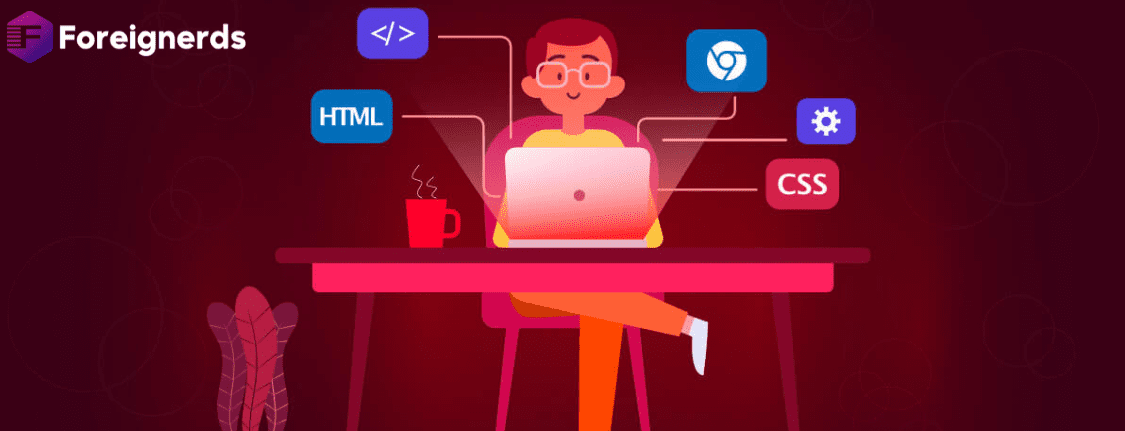- Home
- Design and Development
- Vue vs. Angular: Which framework is...

The landscape of front-end development is adorned with numerous JavaScript frameworks, but among them, Angular, React, and Vue stand out as the holy trinity. In this comprehensive analysis, we will delve into the realms of Vue and Angular to guide you in making an informed decision for your front-end development endeavors in 2023.
Angular, initially released in 2010 as Angular JS, is a front-end framework structured around TypeScript. Developed by Google, it boasts a plethora of built-in tools and libraries, making it an excellent choice for large-scale applications. The official CLI facilitates project management and dependency handling, enhancing the development process.
In contrast, Vue is the youngest member of the top JavaScript frameworks, initiated by Evan You in 2014. Its rapid rise in popularity can be attributed to a developing open-source community. Learning from the experiences of Angular and React, Vue positions itself as a faster and simpler alternative, especially appealing to novice developers.
While Angular has traditionally dominated popularity rankings, the tides are shifting. Vue now enjoys an advantage in Google searches and GitHub stars, with 197k and 90.3k respectively. In the labor market, Vue is gaining momentum, surpassing Angular in the number of job offers. The simplicity and accessibility of Vue contribute significantly to its growing popularity among developers.
The popularity divide reflects in the development dynamics of these frameworks. Angular, backed by Google, receives robust support and offers a plethora of tools. However, its sheer size can pose challenges for newcomers. On the other hand, Vue’s community-driven development thrives on the contributions of passionate developers, making it more flexible and approachable for those starting out. Vue’s youth, currently at version 3, contributes to a smaller but extensive development history.
Angular mandates TypeScript, a statically typed language. While beneficial for large-scale applications, it may prove time-consuming for smaller projects. Vue, although adopting TypeScript in version 3, predominantly relies on version 2 for most projects, offering a more flexible approach.
Both frameworks boast exceptional speed with slight trade-offs. Vue excels in memory allocation, while Angular, being bulkier, occasionally lags in startup speed. However, Angular shines in DOM manipulation, showcasing superior performance in this aspect.
Vue takes the lead in terms of size and speed. Even with additional components like Vuex, Vue remains considerably lighter compared to Angular. Both frameworks have undergone size reduction over time, minimizing the once-significant gap.
Vue provides developers with extensive flexibility, allowing the integration of well-supported libraries like Vuex and Vuetify. Angular, known for its defined app architecture, caters to large-scale applications. Choosing between them involves considering your front-end team’s preferences and your project’s complexity.
Vue employs a virtual DOM for optimized performance, rendering changes efficiently. In contrast, Angular uses watchers to track old data values, updating only parts of the original DOM with changed values. Vue’s virtual DOM contributes to faster loading times and efficient view updates.
Vue’s simplicity facilitates a quicker start, requiring only HTML and JavaScript knowledge. Angular, designed for larger and more complex applications, demands a deeper understanding of TypeScript, MVC, and familiarity with its extensive library. This complexity can be challenging for beginners.
In conclusion, Vue and Angular cater to distinct development groups and project requirements. Vue emerges as a suitable choice for less experienced developers working on smaller applications. Its simplicity and backward compatibility with older projects make it an attractive option. On the other hand, Angular shines in creating large-scale applications, offering a standardized architecture preferred by many companies.
In the dynamic world of front-end development, the choice between Vue and Angular hinges on your project’s specifics, team preferences, and business needs. While this analysis provides valuable insights, staying abreast of front-end development trends and seeking guidance from experts can further refine your decision-making process. The evolution of these frameworks is rapid, and aligning with the right one ensures a robust foundation for your front-end endeavors in 2023.
© 2013 - 2025 Foreignerds. All Rights Reserved